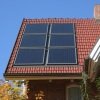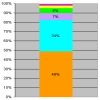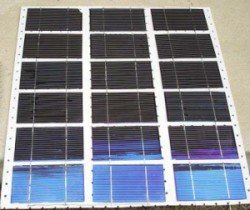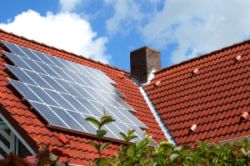Solar Power Financing
As a homeowner, it's important to understand your solar power financing options.
From solar panel lease programs to solar loans, a homeowner interested in implementing a residential solar power system will benefit from taking some time to get familiar with the many financing options they qualify for.
Not only can these programs provide the solar power financing you need to bring your solar vision to life, there are also some great solar energy incentives that can help you significantly reduce the cost of your residential solar energy system.
Solar Loans
Solar loans often form the foundation of a homeowners solar power financing plans. There are several types of loans that you can use to finance your solar power system. These can generally be classified as...
- Home Equity Loans
- Supplier Loans
- Consumer Loans
Another special type of loan you may qualify for is an energy efficient mortgage (EEM). These can be created for both new or existing homes.
Two advantages about energy efficient mortgages are...
- They have a low interest rate which is subsidized by the federal government
- They allow the homeowner to get a larger loan to cover the up front cost of creating a more energy efficient home
For More Information: Solar Loans
Solar Lease
A solar lease is another great solar power financing option for homeowners that doesn't require the up front capital to get a solar power system installed in your home. This option allows you to lease solar equipment instead of purchasing it.
A solar power company will provide the solar equipment and install it on your home. You then pay a fixed monthly lease payment to the company in return for using the system to generate power for your home.
Two advantages you get when you lease solar panels are...
- You lock in the cost of the energy you use. When the price of electricity provided by the utilities increases, you won't be affected.
- You are able to go solar with minimal up front costs.
For More Information: Solar Lease
Solar Power Incentives
There are many types of solar power incentives you can use to help offset the cost of solar energy. Some of these incentives are provided by your local, state, and federal governments while others are provided by solar manufacturers and utility companies.
Government solar incentives are generally provided to help encourage the use of solar energy. This is critical in order to help bring down the cost of solar energy over time. The more people that are using solar technology, the less expensive it will become.
On the other hand, solar manufacturers will offer incentives to encourage homeowners to use their products. It's a win-win for solar manufacturers and homeowners.
Solar Energy Tax Credit
A solar energy tax credit is an incentive offered by the federal government as well as some state governments. Their purpose is to encourage solar energy usage by making it more affordable for homeowners take up. These are most applicable for solar hot water and solar photovoltaic systems.
This is a great incentive because a tax credit is more beneficial than a tax deduction. With a solar tax credit, you will be able to reduce your tax bill dollar-for-dollar for the cost of your system up to the incentive limit. A tax deduction, on the other hand, only reduces your tax bill by a percentage of your costs based on your tax bracket.
For More Information: Solar Energy Tax Credit
Solar Power Rebate
Solar power rebate programs exist for most types of residential solar energy systems. Most rebates are for photovoltaic systems and solar water heating systems. But some are also avalable for other types of solar heating, solar cooling, and daylighting systems.
There are three primary types of solar energy rebates...
- Utility Solar Rebates
- Local Solar Rebates
- State Solar Rebates
The majority of rebates are provided by utility companies, so you should definitely contact your local utility to find out if there are any rebates available for the solar technology you will install in your home. This can be an important part of your solar power financing plan.
For More Information: Solar Power Rebate
Solar Energy Grants
If you qualify, solar energy grants are some of the best incentives available. Unlike a solar loan, a solar grant is a financial reward that you do not have to pay back. The challenge will be finding grants that are targeted at residential solar power systems. Most are for commercial, industrial, utility, education, and government solar power projects.
There are five types of solar power grants...
- Federal Grants
- State Grants
- Local Grants
- Utility Grants
- Non-Profit Grants
For homeowners, you will only need to look at State, Local, and Utility grants for solar power. There aren't any residential grants in the Federal and Non-Profit categories.
For More Information: Solar Energy Grants
Power Purchase Agreement
With a solar power purchase agreement (also called sppa or solar ppa), the solar power system installed in your home is owned by a solar company and you simply pay them for the power the system provides. This is similar to a solar lease, except that with a solar lease you are actually leasing the solar equipment whereas with a solar ppa you are only paying for the power the system generates.
A power purchase agreement has the following key advantages...
- Fixed monthly per unit costs for the energy generated by the system
- No large up front costs for the solar power system
Solar Energy Financing Decisions
As a homeowner, there are several options available to you for financing your solar power system as well as multiple solar power incentives that can significantly reduce the overall cost of your system. Make sure you consider all of the solar power financing options available to you.
Home > Solar Power Financing










